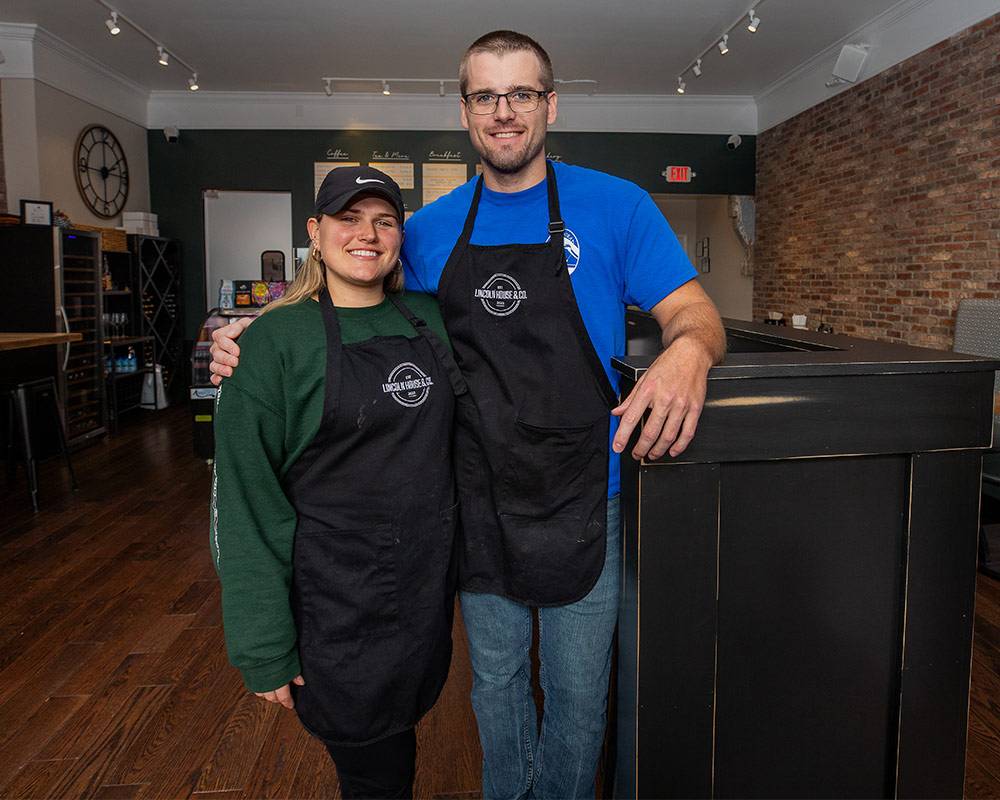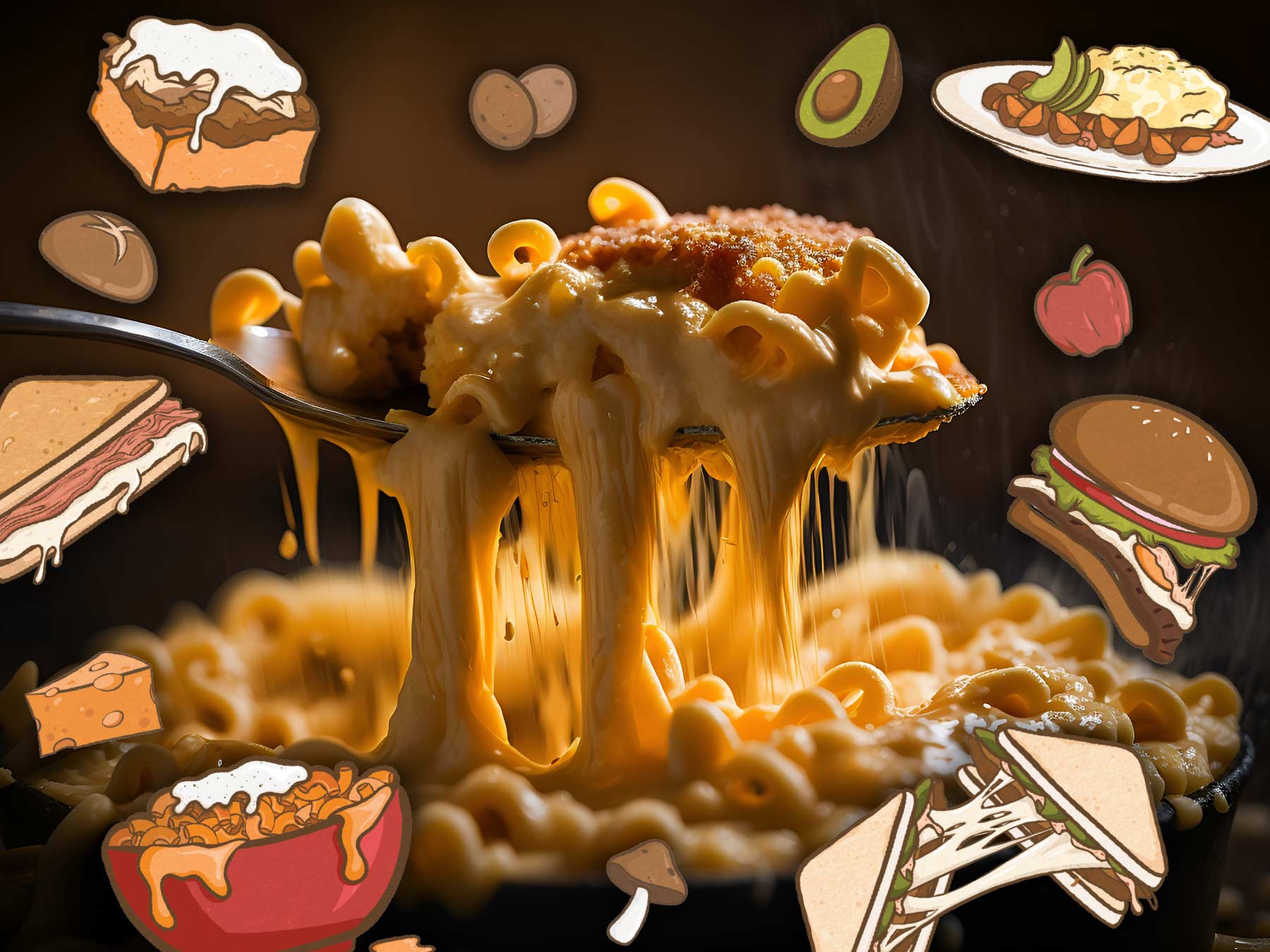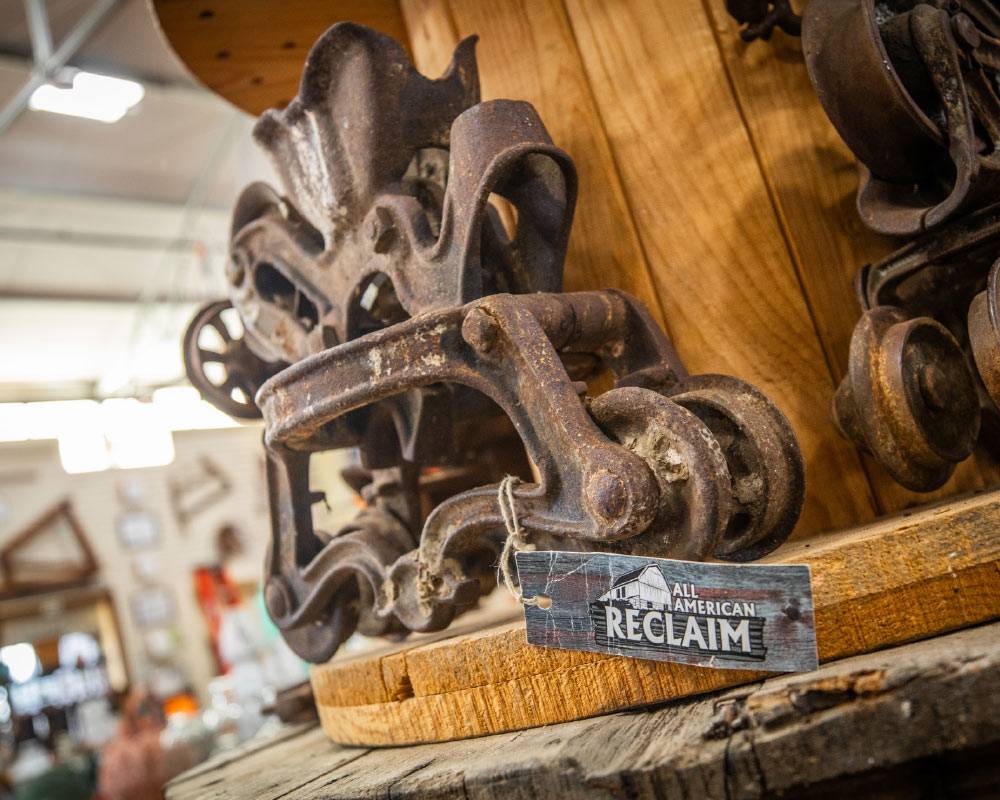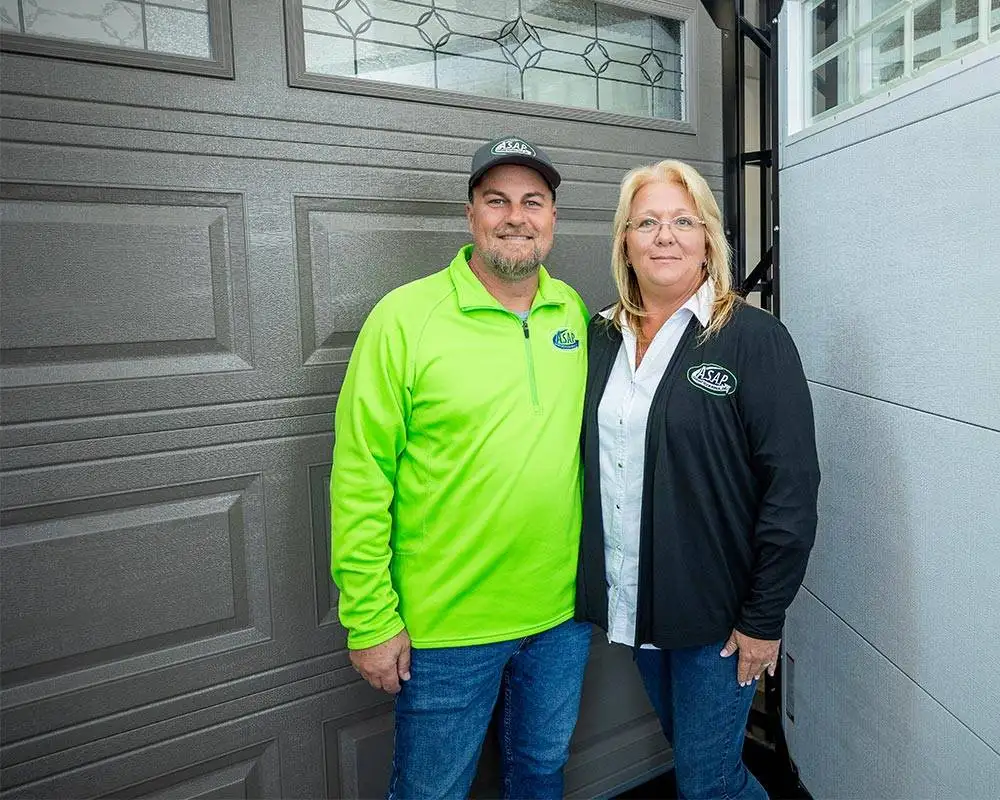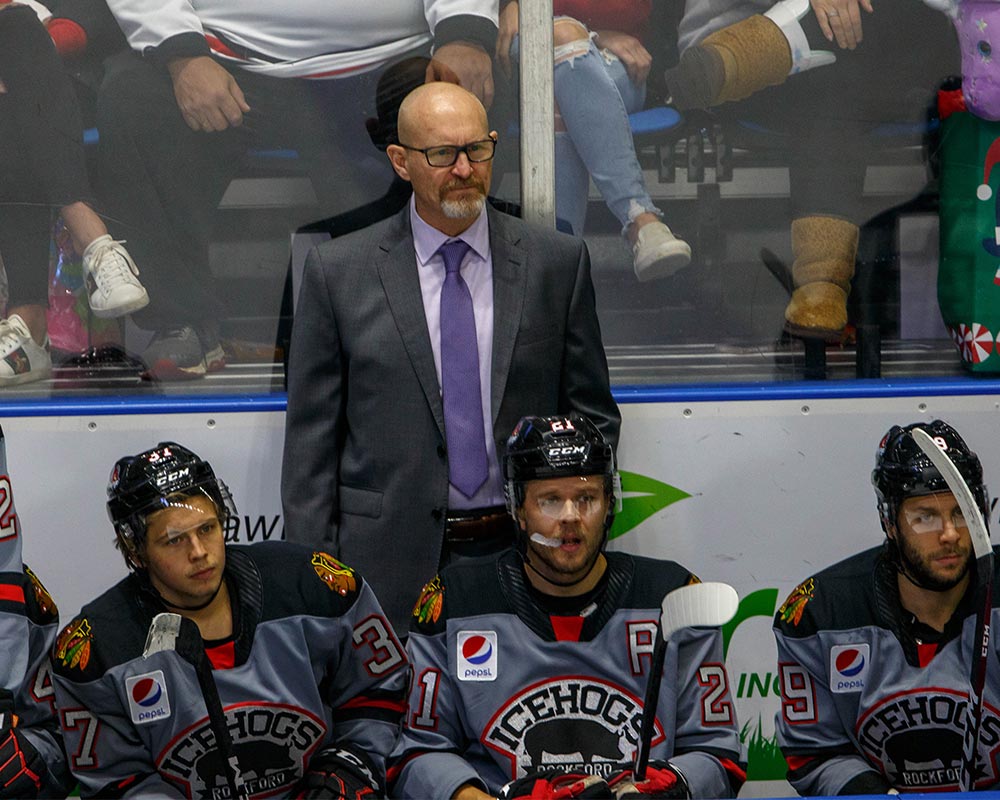Derek King has spent decades building to this point, first as a player, then as a coach, with many stops along the way. Now, as the Chicago Blackhawks’ newest head coach, he’s reveling in his moment.

Wherever Derek King has coached, he likes to post a sign in the locker room that reads, “Work Hard, Be Humble.”
It’s a credo he picked up from his father and one that’s stuck his entire life. “My dad always said, ‘Be nice to people on the way up and they’ll be nice to you on the way down.’”
It might sound odd coming from someone who works in a rough and tumble sport like hockey, but it’s a principle that has served King well during both his playing and coaching career.
“He’s truly one of the good guys,” says Mike Johnson, a former teammate. “Which isn’t easy in such a competitive sport.”
For the past five seasons, King has served as an assistant and head coach for the Rockford IceHogs. But after a sluggish start to the season by the Chicago Blackhawks, the Hogs’ parent club, King was recently named interim head coach of the Hawks.
King fell in love with hockey growing up in Hamilton, Ontario. His family came to Canada from Scotland, where his father played soccer. But in Canada, hockey is king and this King was just 6 years old when his dad first put a stick in his hands.
“I started playing hockey because my older brother played,” he says. “My dad figured he’d put me in there, too. He got me dressed and threw me over the boards.”
A huge Toronto Maple Leafs fan, King fondly recalls playing street hockey nearly every day as a youngster. When he wasn’t outside playing hockey or soccer, King played hockey in a house league at a local rink, where he performed well enough to score an invite to play in a Triple A league.
King played junior hockey as a teenager and excelled. In 1985, he was selected No. 13 overall by the New York Islanders and played with the club for 11 years before going to Hartford and Toronto, then his last stop in St. Louis. King finished his career with 261 goals and 351 assists in 830 career games and 47 career Stanley Cup playoff games.
King lasted 14 seasons in the NHL. “My career was more than I ever thought it’d be,” he says. “I was fortunate to play with great players and great organizations. Timing is everything. I could’ve been drafted by Edmonton instead of New York and may never have played there. I went to New York, a team that was rebuilding, and had a new coach who believed in the young guys.”
One of his greatest thrills, however, was the chance to play for his hometown Maple Leafs. In fact, King was the last Toronto player to score a goal in the old Maple Leaf Gardens, before the team moved to a new arena. The puck ended up in the Hockey Hall of Fame.
“I have a lot of great memories playing for the Islanders in New York; it’s where I met my wife. But playing for the Leafs, after being a huge fan of the team, was an awesome experience,” he says. “There was a lot of pressure playing for my hometown team, but it was worth it.”
Former teammate Johnson, who affectionately refers to his friend as Kinger, remembers King as a leader on and off the ice.
“Kinger was one of the older guys who helped us with a veteran perspective and his sage wisdom,” says Johnson, who’s now a hockey analyst for the NHL Network and TSN. “It was great to be around him every day in practice, and he was one of the funniest guys in the locker room with all his jokes.
“There’s a lot of pressure for professional athletes to perform, both internally and externally. Kinger helped me as a young player learn how to relax and not wear myself out.”
It was those leadership skills King displayed as a player that made him an ideal candidate to coach following his retirement, even if he didn’t realize it at the time.
“Coaching was never my plan,” he says. “But I’ve always enjoyed working with the young guys. They want to be in the NHL so badly, and they work so hard for so little money. That’s what got my blood flowing. I’m glad I stuck with it.”
And he was blessed to have coaching legends as mentors along the way. “I was lucky,” King says. “Communication was huge for the guys I played for. It wasn’t always about the X’s and O’s. Terry Simpson was my first coach when I became a pro. He was good with young guys, and he gave me opportunities to learn from my mistakes. Al Arbour was so hard on me. He pushed my buttons to get me to play better. Pat Quinn was the same way.”

King first served as an assistant and associate coach for the Toronto Marlies of the AHL for six years. He helped the Marlies to one Western Conference championship and three North Division championships.
In 2016, King came to Rockford and served as an assistant coach for three years, before being named as interim head coach for the 2018 season. He was named head coach in April 2019 and started this season coaching the IceHogs before getting promoted to Chicago.
Coaching professional hockey is a never-ending grind filled with games, travel and plenty of practices for most of the year.
King doesn’t really have hobbies. Away from the ice, he enjoys, well, coaching more hockey. During his time with the IceHogs, King worked with youth players involved with the Rockford Hockey Club.
And that includes his own kids. He’s been married to his wife, Suzanne, for 27 years and they have three sons who all play hockey. DJ, 21, plays for the Fort Wayne Komets of the East Coast Hockey League. His 13-year-old twins, Mac and Owen, play in the Rockford Hockey Club. Mac also plays for the Milwaukee Admirals club.
King applies no pressure on his kids to follow in his footsteps. “We’ll see where it takes them,” he says. “It’s a great game, but I don’t force them to play.”
Now that King has reached the apex of his sport, don’t expect him to change his ways – whether it’s his coaching philosophy or his calm demeanor. He knows the Blackhawks have a long climb to return to their glory days, but he’s up for the challenge.
“I expect a lot from the players,” he says. “I want them to work hard on every shift and compete. What kept me in the game as a player was my feel for the game. I was a smart player, not the best player. I’m not one to kick a guy in the seat of the pants. If I’m calm on the bench, the players will react to that. They could go out and win 10 in a row and no one will worry about the first part of the season.
“Winning is a teaching tool,” he adds. “If we’re up a goal with a minute to play, you have to play the kids and let them feel that pressure. It’s hard when you’re competitive, but it’s easier when management and the organization has your back.”
Mike Johnson believes King has all the tools to be a successful NHL coach.
“One of the most important qualities of any good coach is the ability to be a good communicator,” he says. “Kinger has always been upfront and honest; you always know where you stand with him. The players know what the expectations are with him and that’s half the battle.”













